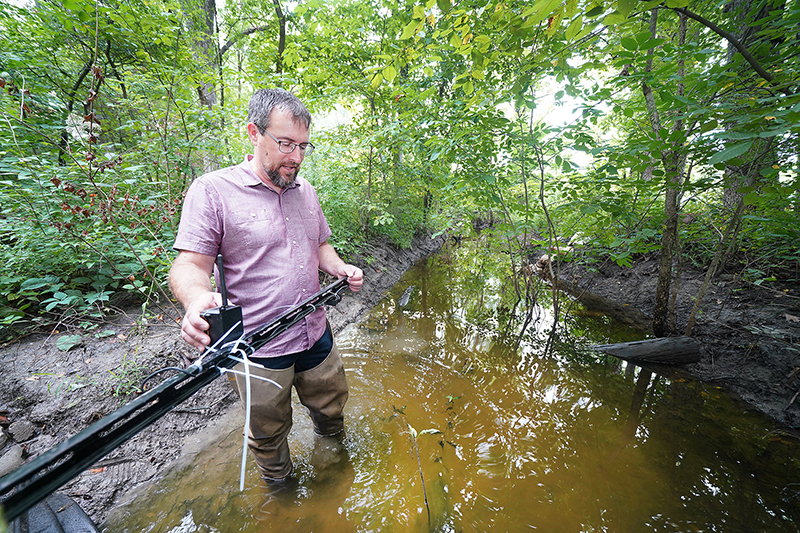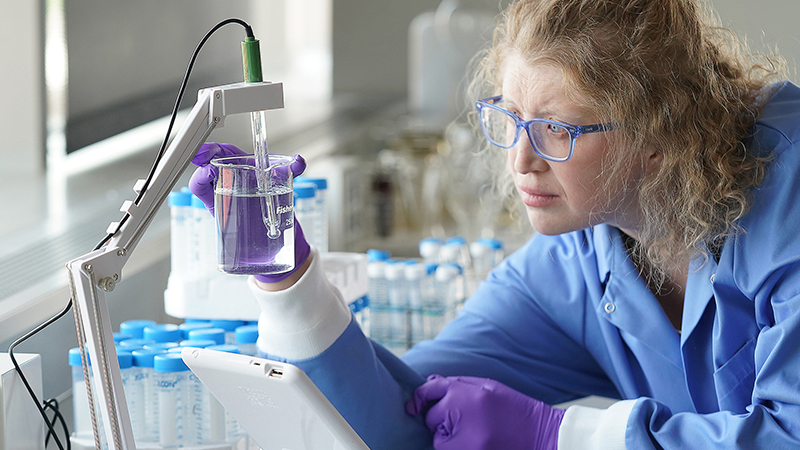Purdue Agricultural and Biological Engineering undergraduate program ranked first in US
Purdue University’s Agricultural and Biological Engineering (ABE) undergraduate program is ranked No. 1 in its category in the 2024 U.S. News & World Report undergraduate program rankings, released Monday (Sept. 18). The ranking marks the 13th consecutive year the program has earned a spot in the top two.
“ABE has consistently achieved this ranking because the faculty and staff focus on making a global impact in key areas of research and preparing our students to take that impact to the next level,” said Glenn W. Sample Dean of Agriculture Bernie Engel, who is also an ABE professor and former department head. “I am grateful to ABE’s department head, Nate Mosier, for his skilled leadership and to all the faculty and staff members for their commitment. Our students have numerous positive experiences during their time in ABE, from exceptional mentorship and research opportunities to multiple student organizations.”
John A. Edwardson Dean of the College of Engineering Arvind Raman said, “ABE’s No.1 ranking with one of the nation’s largest numbers of enrolled agricultural and biological engineering majors is emblematic of Purdue’s signature excellence at scale. I am grateful to the faculty and staff for their exceptional effort to deliver top-notch educational programs to students.”
Mosier, who as the Indiana Soybean Alliance Soybean Utilized Endowed Chair focuses his research on bioprocessing and the conversion of renewable resources to fuels, chemicals and pharmaceuticals, praises the department’s research diversity. “I believe our department earned this honor for many reasons,” he said. “But when I look at our distinguished team of faculty, staff and students and consider all the areas in which my colleagues excel, I take pride knowing that depth translates into preparing our students to make a major difference across industries. It’s no surprise to me that our students become incredibly successful alumni.”
ABE’s key areas of research align with the department’s degree programs: agricultural systems management; biological and bioprocess engineering; data science and digital applications; environmental and natural resource engineering; and machine systems engineering.
 Keith Cherkauer monitors an experiment utilizing groundwater for irrigational use at Purdue’s Agronomy Center for Research and Education. A professor in Purdue’s Department of Agricultural and Biological Engineering, Cherkauer is also director of the Indiana Water Resources Research Center. (Purdue Agricultural Communications photo/Tom Campbell)
Keith Cherkauer monitors an experiment utilizing groundwater for irrigational use at Purdue’s Agronomy Center for Research and Education. A professor in Purdue’s Department of Agricultural and Biological Engineering, Cherkauer is also director of the Indiana Water Resources Research Center. (Purdue Agricultural Communications photo/Tom Campbell)
Last year the 32 members of ABE’s faculty garnered 82 awards for research, totaling $15.4 million. ABE’s 378 undergraduate students represent 64 counties in Indiana, 29 states and 11 countries. Over 95% of last year’s graduates either accepted a full-time position or are continuing their education after graduation.







